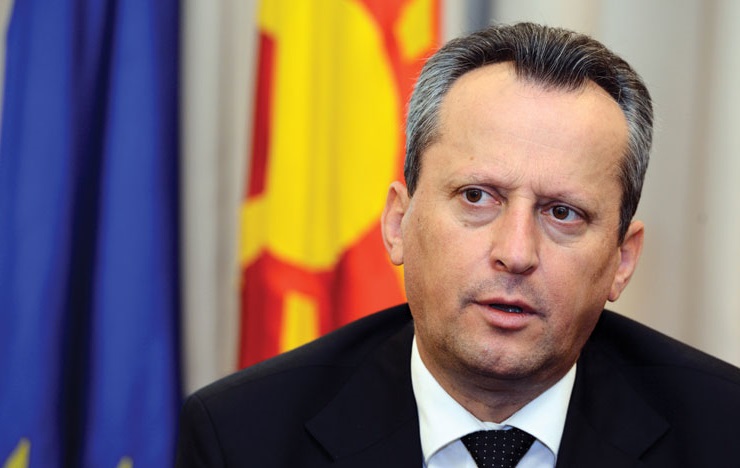The Zaev Government perpetrated a series of politically motivated arrests on Wednesday, detaining former Parliament Speaker Trajko Veljanoski. Also arrested were former Government Minister Mile Janakieski, who has already faced charges in other politically driven cases, and Spiro Risteski, all from the opposition VMRO-DPMNE party.
According to the initial reports the three were arrested in an attempt to expand the investigation related to the April 2017 incident in the Parliament, which erupted when the SDSM and DUI parties staged an irregular vote to elect a new Speaker who would replace Veljanoski. This provoked several thousand protesters to enter the Parliament building and while most of the protesters were peaceful, a masked group, possibly infiltrated from the outside, attacked SDSM and Alliance of Albanians members tof Parliament. Two former police officials are also being charged – one of them claims asylum in Greece while the other is already detained.
SDSM already used this case to pressure several VMRO-DPMNE members of Parliament, which it charged with “terrorism” and kept in detention until three of them agreed to vote in favor of renaming the country into “North Macedonia”. The three negotiated an amnesty deal with Zoran Zaev in exchange for their votes and while the name change was being approved by the Parliament, Zaev spoke of political reconciliation in wake of these and dozens of other politically motivated arrests.
But, shortly after the vote, one those who were charged, refused to vote to rename the country, but still claimed amnesty – Ljupco Dimovski – was re-arrested, this time on different charges, indicating that the Zaev led Government intends to continue using the incident to attack the opposition. Under the scenario presented in pro-SDSM media outlets and backed by testimonies from some of the protesters, those charged were coordinating the protest.
Veljanoski, as Speaker of the Parliament, remained in office after the December 2016 early general elections proved inconclusive and the VMRO-DPMNE group maintained a filibuster. Their demands, as well as the demands of the protesters, were that another election is held since the SDSM party campaigned promising it will not change the name of the country and will not accept a series of unconstitutional laws contained in the so-called Tirana Platform presented by ethnic Albanian parties, but after the elections signalled it will accept the demands. After protracted negotiations on whether elections should be held, SDSM and DUI staged a vote in a corner of the Parliament hall after the session was closed for the day by Veljanoski, and despite being unable to count the actual number of votes, they appointed former guerrilla commander Talat Xhaferi from DUI as a new Speaker. Xhaferi was recognized as Speaker by the US State Department and EU foreign policy chief Federica Mogherini later that evening, two parties involved in the push to rename Macedonia.
In November 2017, the police detained a group of members of Parliament and protest organizers, including leading opera singer Igor Durlovski and director Boris Damovski. Veljanoski’s assistant Elena Bozinovska, a mother of two, was kept in detention for months on the charge that she gave “non-verbal” instructions to protesters, a charge which completely confused her defense.
Over the year, the charges and testimonies of the witnesses, who were put under pressure to point to the most convenient political target, shifted and included attempts to implicate former Prime Minister Nikola Gruevski, who has since received political asylum in Hungary, as well as President Gjorge Ivanov when it was assumed that his signature will be needed to verify the name change. Eventually the Government claimed that the ratification process is complete even without his signature, after Xhaferi signed the name change.
The members of Parliament deemed most likely to break and vote to rename Macedonia were especially pressured in the case, until enough of them broke faced with lengthy prison sentences, often just for being present during an unruly protest. Most of the protest organizers received amnesty – Durlovski and Jane Cento refused the offer as did protester Igor Jug. Former Interior Minister Mitko Cavkov and police official Dusko Lazarov also refused the offer of amnesty indicating their innocence.





Comments are closed for this post.